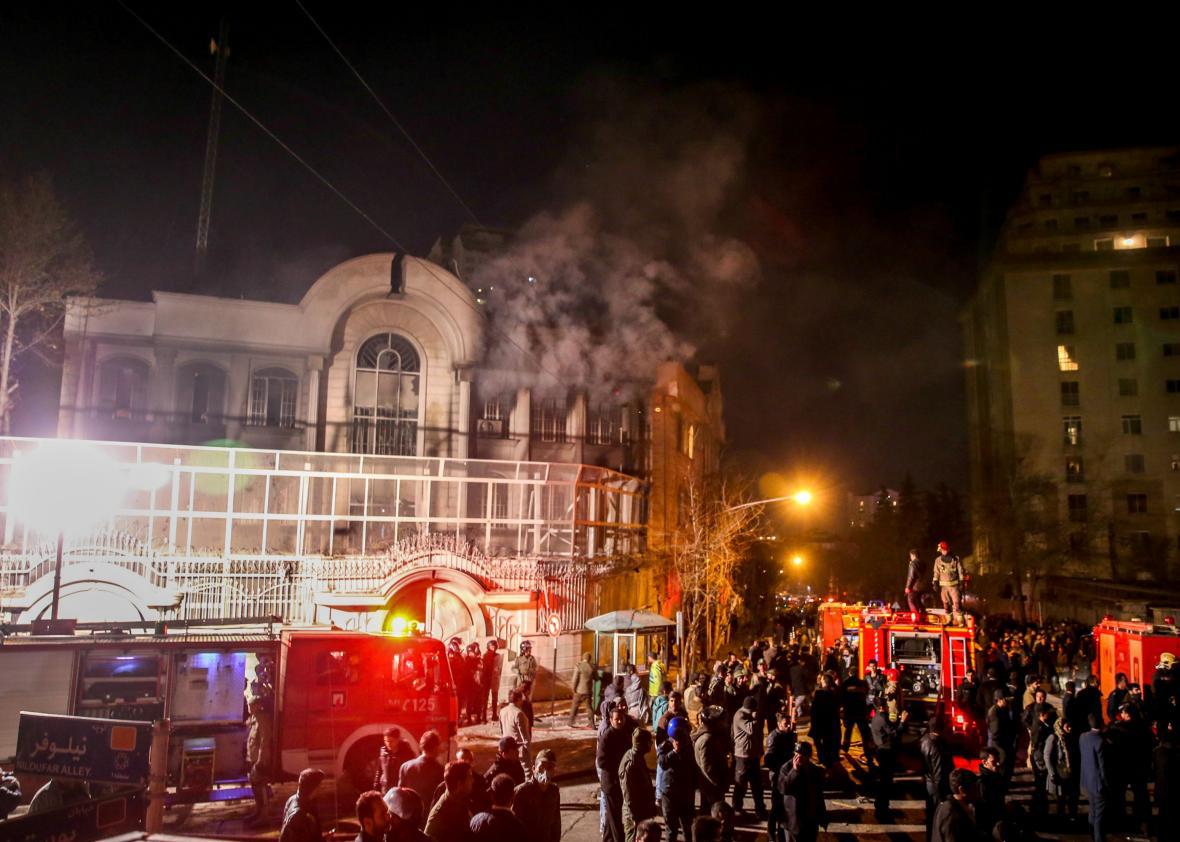Iran’s Supreme Leader Ayatollah Ali Khamenei said on Sunday that “divine revenge will seize oppressors” who executed Sheikh Nimr al-Nimr, a Shiite cleric. He also called on the world to join Iran in condemning the execution. “The world of Islam and the whole world should have a sense of responsibility towards this matter,” he said. Khamenei posted an illustration that refers to Saudi Arabia as “white ISIS” as part of his strong condemnation of Nimr’s execution on Twitter and his personal website mere hours after protesters stormed the Saudi Embassy in Tehran. Saudi Arabia executed Nimr and 46 others on Saturday in what was the largest mass execution carried out by the kingdom in 35 years.
Khamenei was hardly alone in his condemnation. Iran’s Revolutionary Guard characterized the execution as a “medieval act of savagery” that would lead to the “downfall” of the ruling royal family. Saudi Arabia fired back at the criticism saying that Iran was showing “its true face represented in support for terrorism.”
The United States, meanwhile, is calling on the countries to refrain from taking “any actions that could further heighten tensions.” Despite the rhetoric, there are some hints that Tehran may be eager to do just that, notes the New York Times. Iran arrested 40 people on Saturday night for violence and President Hassan Rouhan said attacks like the one that took place on the Saudi embassy “damage the holy reputation of Islamic Republic of Iran.”
Criticism of the execution was not limited to Iran. In Iraq, several religious and political leaders called on the government to sever ties with Saudi Arabia. Iraq’s top Shiite cleric Grand Ayatollah Ali al-Sistani described the executions as an “unjust aggression.” And in Bahrain, police used water cannons to try to quell protesters on Sunday.
